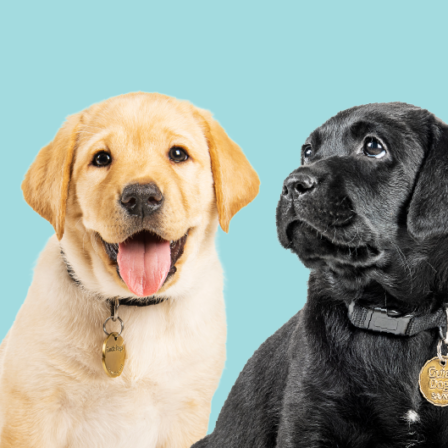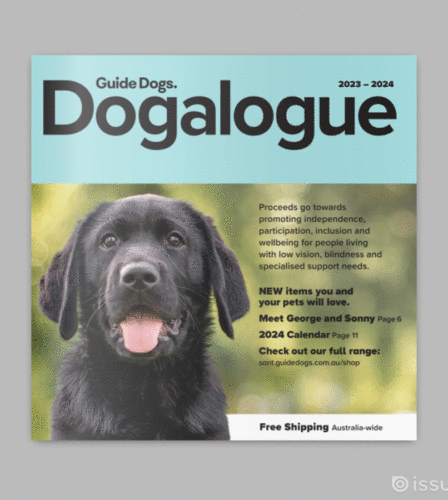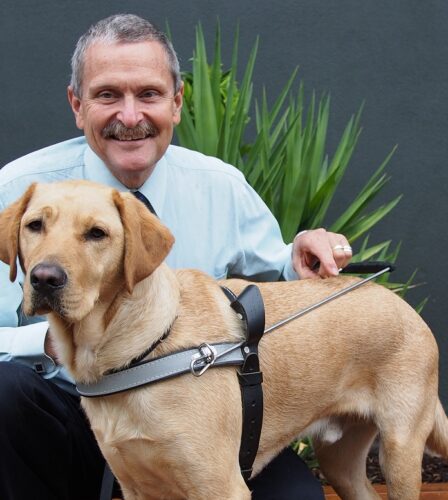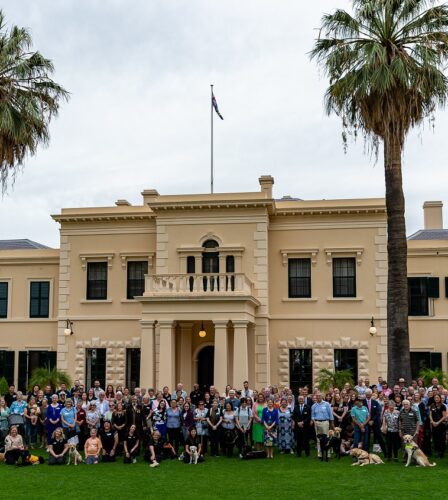News
World Sight Day 2017: Life skills for greater independence
29 year-old Chelsea, has Bardet-Beidl syndrome, a disorder that caused her vision to deteriorate from three years-of-age. Just like any other young woman, Chelsea Bartlett wants to live an independent life.
Guide Dogs SA/NT has been there to assist Chelsea get the most from her available vision at various life stages.
Currently a white cane user, Chelsea is on the waiting list for a Guide Dog. She lives with her parents and her current goal is to be able to cook nutritious meals for herself and not have to rely on others.
“The skills I have learned through Guide Dogs has built my confidence,” she said. “All of the services have made me feel independent. And I hope to one day be living in my own place.”
Safe food preparation, safe handling and organisation of the physical cooking environment are just some of the keys to independent living. Chelsea, who works part time for National Disability Services presenting workshops for young people to encourage them to consider a career within the disability sector, has recently undertaken a cooking program run by Guide Dogs SA/NT. These training sessions build on her previous orientation and mobility training and participating in the Guide Dogs SA/NT Life Skills camps.
The cooking program is individually designed to best suit the person and the goals they wish to achieve.
A typical cooking program looks at the use of common utensils such as knives, vegetable peeler, grater and tin opener. A person is taught techniques on how to safely cut and how to measure ingredients. This may include the use of cup and spoon measures or talking kitchen scales and measuring jug.
Also taught is the safe pouring of hot liquids and use of a liquid level indicator, or one cup kettle. The safe operation of kitchen appliances such as the oven, microwave, electric frying pan or slow cooker. Many of these program also look at high contrast marking of appliance controls so they can be located and operated correctly. This involves using puff paint, bump-on buttons or Velcro.
The need for colour contrast and lighting would also be considered. Advice would also be given on the format the person would need a recipe presented in including large print, braille, audio or the use of a device such as a tablet or iPad.
Chelsea said one of the useful skills she learned was using highly coloured chopping boards for different foods and also how to use her other senses such as smell and touch with a small spoon to determine if a piece of meat was properly cooked.
Learn more about our range of specialist vision services









